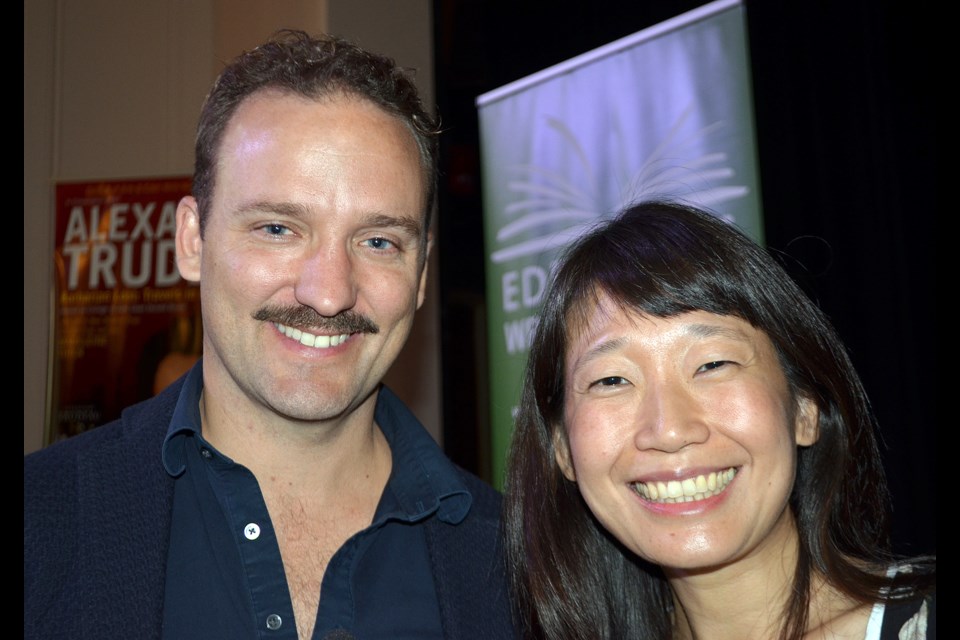Writing a book about his journey to China was a bit of a departure for Alexandre Trudeau.
China was the focus of a discussion between the filmmaker and author and Canadian author Madeleine Thien at War Memorial Hall Saturday as part of the Eden Mills Writers’ Festival.
“I’m a filmmaker who never really wanted to be a writer,” he said. “This book was a long time in the making.”
Trudeau, brother of Prime Minister Justin Trudeau, was there to talk about his first book, Barbarian Lost: Travels in New China, that, as the title suggests, chronicles his recent experiences as a Canadian traveling in China.
“I find it strange that Madeleine is interviewing me about my book about China,” Trudeau said. “I spoke to her about this and how the discovering of China was in many ways a discovery of ourselves.”
He opened the talk with a quote from 5th Century BC Chinese Daoist philosopher Lao Tzu “A good traveler means never to arrive.”
The concept for the book arose after he was asked to help with a reprint of the book Two Innocents in Red China co-written by his father, the late and former Canadian Prime Minister Pierre Elliot Trudeau, about his visit to the country in 1960.
“I went for the first trip to China to find out what’s going on there now,” said Trudeau. “I started writing way more material than they could use in the preface so they said there is a book in you. Would you like to write one and I said sure. “
Madeleine Thien is the daughter of Malaysian-Chinese immigrants. Her fourth and most recent novel, “Do Not Say We Have Nothing,” is about art, music and revolution in China and is nominated for the 2016 Man Booker Prize.
“Our parents instilled in us an idea of China as a vast and complex society,” said Thien.
Her mother was born in Hong Kong and always hoped to travel to Mainland China with her daughter. She passed away in 2002 at the age of 58 when Thien was 28 so she made the trip without her three months later.
“It was the first time I had ever been there and the first time I had been to Hong Kong,” said Thien.
“I didn’t speak the language. I was still grieving. I was a mess. I remember feeling here was this whole new universe where my mother could have been my guide but she wasn’t there to guide me.”
Trudeau said his father, who passed away in 2000, continues to guide him on his journeys.
“I’m a child of my father as a traveler,” he said. “Does he travel with me, yes.”
His father visited China during the reign of Chairman Mao whose efforts to industrialize the country triggered a devastating famine that killed an estimated 60 million people.
Thien said that the famine and other negative elements of Mao’s policies are not part of the official history and she is concerned by recent crackdowns on civil rights lawyers and activists in the country.
“My books have always tended to have a deep interest in history and in geopolitics and the way that people remake their lives in the aftermath of catastrophe or fail to remake their lives and about different forms of historical amnesia,” she said.
Trudeau believes political change in China will be slow in coming.
He believes establishing more trade will help move that progress along but stressed that his book and travels there do not parallel his older brother Justin’s recent trade mission to China.
“People think that my brother and I are different heads of the same phenomenon and that is not true obviously,” said Trudeau. “I pity my brother because he has such a hard job.”
